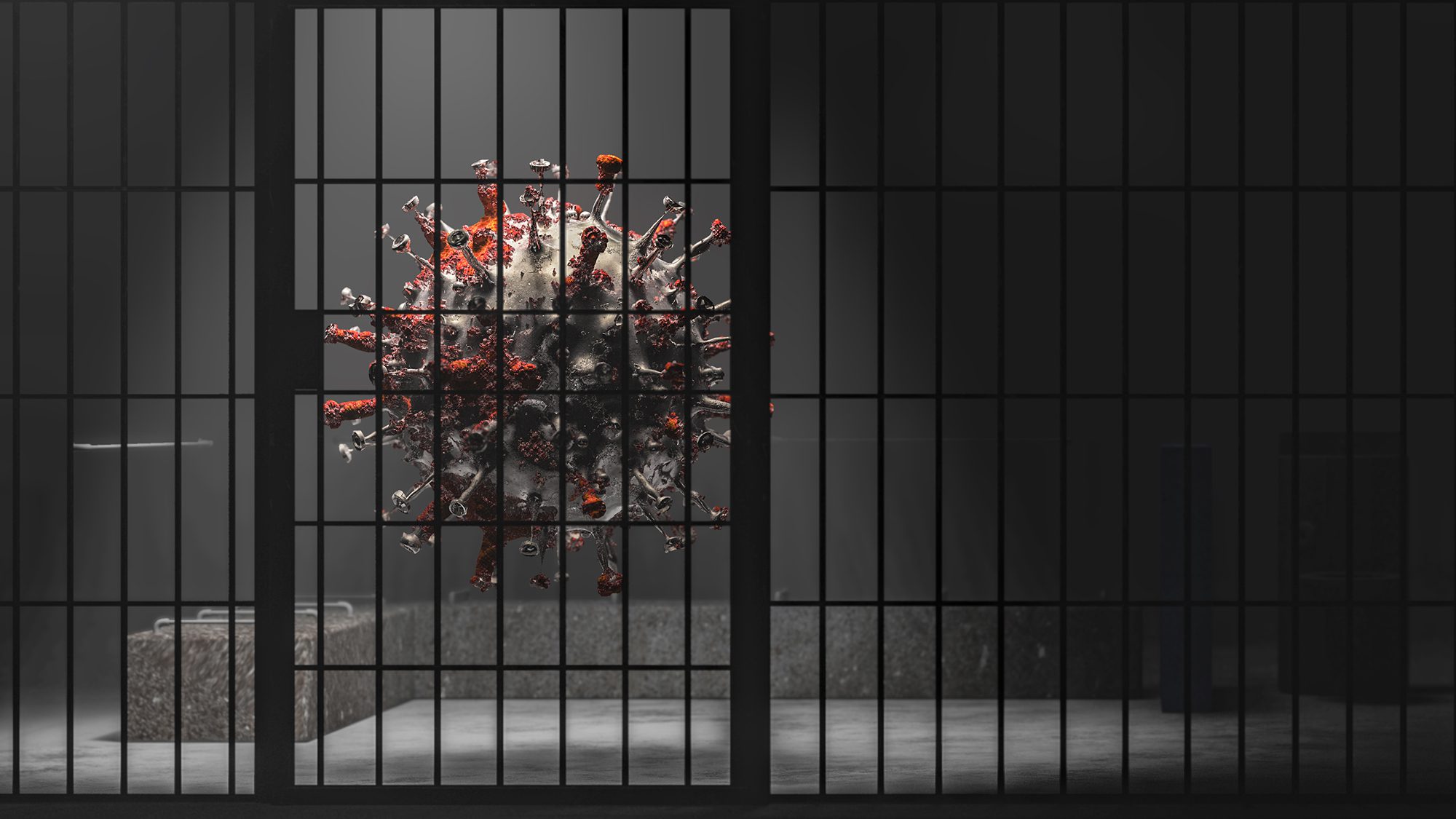Justicia fights for COVID-19 protections for people who are incarcerated

While nursing homes and meatpacking plants were the early epicenters of the COVID-19 pandemic in the United States, the five largest outbreaks are now in correctional facilities, according to an analysis by The New York Times.
Cases of the virus among inmates has doubled in the past month, and deaths are up by 73 percent, the newspaper reports.
In county jails, where there’s a “revolving door” of people incarcerated for as few as 12 hours before posting bail, infection from COVID-19 becomes “an entire community threat, because people are going back out to their communities, and anything they catch on the inside, they can infect people at home, and vice versa,” says Brittany Arsiniega, an attorney and an assistant professor of politics and international affairs at Furman University.
Arsiniega is part of a team seeking COVID-19 protections for people incarcerated in the Spartanburg County Detention Center. The lawsuit was filed by Root & Rebound, The American Civil Liberties Union of South Carolina, South Carolina Appleseed Legal Justice Center and the Wyche law firm, with whom Arsiniega is affiliated.
Arsiniega, who takes on social justice and human rights cases, is using her legal experiences to expand educational opportunities for Furman students as one of the leaders of the Justicia Project, a legal clinical program that operates as a partnership between Furman and Wyche and directly engages student interns in social justice-related issues. The project is still being formalized at the university, but it is equipping undergraduate students to support and assist in legal work – and to gain insight and experience in law – through an internship long before law school.
Katherine West ’19 was Arsiniega’s first intern under the Justicia Project. She will soon start her second year of law school at the University of Cincinnati, but she’s also assisting her mentor in the suit against the Spartanburg County Detention Center.
The Justicia Project was, West says, her “first introduction to immigration law and legal service work,” opportunities none of her law school colleagues had. The experience, she says, “helped me realize what I was interested in and it helped me apply the skills that Furman taught me.”
Working with Arsiniega now is helping West figure out “what the (legal) needs are in Greenville and in South Carolina as a whole, and what I want to do in the future.”
Teresa Nesbitt Cosby, associate professor of politics and international affairs, had an extensive legal career before stepping into the classroom. She said that when considering a redesign of the department’s law-related activities several years ago, the plans included mock trial, pre-law advising and a legal clinic, the Justicia Project.
“We always look for ways for students to get hands-on experience with the legal field before they go to law school so they know what they’re getting into, and at the same time, provide a public service and a public good,” Cosby said.
When Cosby researched the idea of legal clinics with undergraduate participation, she found that Furman’s program is only the third of its kind in the country.
“The clinic enhances the opportunity for these students to engage in this high-level impact work,” Cosby said, an opportunity created by having professors who are also licensed attorneys.
Some students who work with the project realize their true passion lies outside of practicing law. “That’s valuable, too,” Cosby says, because “we also want students to make informed decisions about whether the practice of law is really for them.”
Emma Carter ’20 is one of those students. This fall, she will start a master’s degree program in interpretation and translation at Wake Forest University to become a trauma-informed interpreter, learning not only the technical aspects of interpretation but also how to engage with those who have experienced trauma.
At Furman, Carter joined the Justicia Project “to see if immigration law was really the route I wanted to take,” she said. “However, when my first assignment was to translate Facebook messages from Spanish to English to help find relevant information for an international kidnapping case, I realized I really enjoyed translation.”
Following that case, she worked on immigration cases with victims of human trafficking and other crimes, meeting with clients directly.
Spencer Richardson ’20 worked with the Justicia Project in 2019. He starts law school at the University of Texas this fall.
“Coming to Furman, I knew I wanted to be involved not only on campus but also in the community,” he said. “Working for the Justicia Project and Dr. Arsiniega accomplished both of those goals. I picked up tangible skills for a life in law and we provided a much-needed service for the Upstate.”
West said Arsiniega and Cosby made an indelible impression on her.
“Both were fantastic and were incredibly influential in encouraging me to go to law school and pursue social justice full time,” she said. “Dr. Arsiniega made it clear that she is not just interested in making change now. She is interested in bringing her students along with her.”
Not only is West coming along, she’s helping pave the way in the case and making a direct impact on the community.
